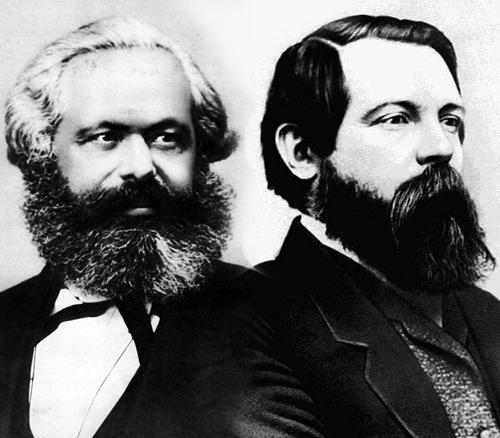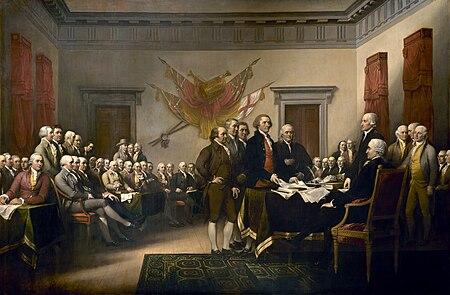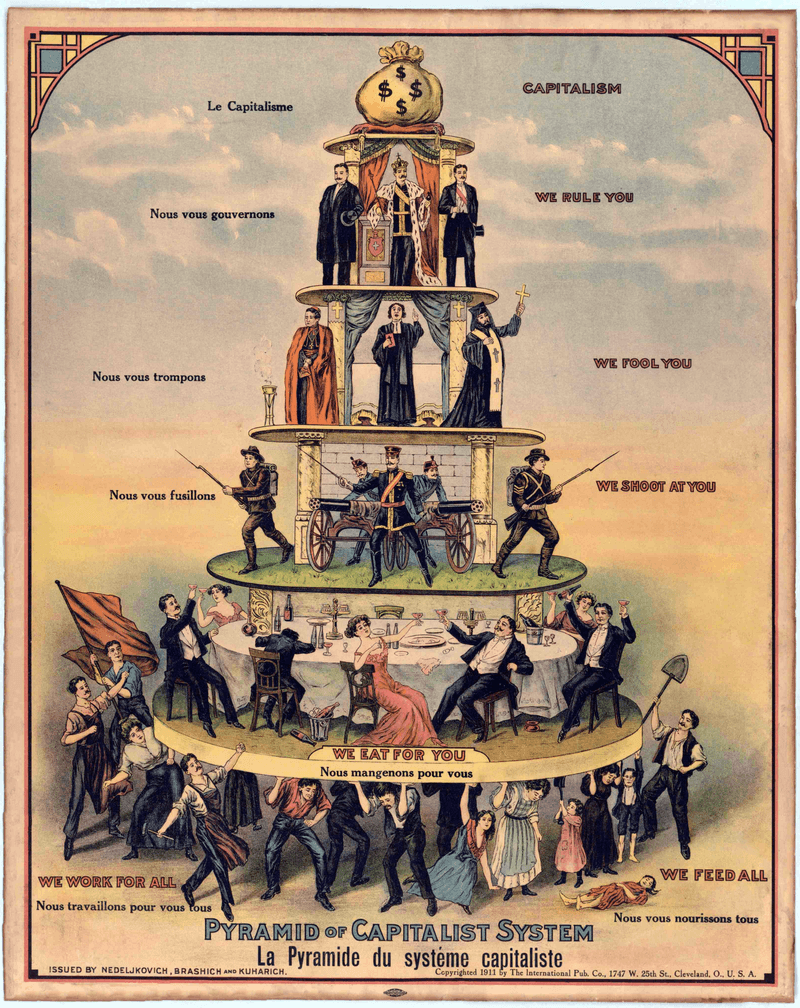Introduction#
As a philosopher, Marx is worthy of respect. However, compared to the title of "philosopher," the name "Marx" carries too much blood and fire. Completed works and deeds, like babies with severed umbilical cords, have gained independence. Today, I don't want to talk about Marx, but about Marx's "baby" - the theory of communism.

Communist education runs through modern China's education. Most people are familiar with and unfamiliar with this theory. Reciting terms such as "materialism," "primary stage," "class," "economic base," etc., we seem to have remembered these profound concepts, but there are still many doubts. When will the advanced stage of communism be realized? Is Western constitutionalism really serving the bourgeoisie? Why must this world be materialistic and absolute? What comes after the communist society? The end of history?
Unfortunately, I am not a person who deeply studies Marxism, nor can I understand many questions. However, if we look at it from the perspective of pure pursuit of truth, everyone should express their true opinions.
Material Basis from a Legal Perspective#
A few days ago, when I was chatting with a friend and mentioned Marx's understanding of the nature of law, he was shocked. As a cautious Chinese, he thought it was too explicit in the book. Marx believed:
Your law is nothing but the will of your class, which has been elevated to the status of law, and the content of this will is determined by the material conditions of your class's life. - Marx and Engels Collected Works, Draft of the Communist Manifesto
Law is always covered with a mysterious veil. In the early days of the nation-state era, the theological color inherited from the tribal era was very strong. For example, the "Book of Rites" records that during the Shang Dynasty, "people were led to serve gods, first ghosts and then rituals." After Emperor Wu of Han abolished the Hundred Schools of Thought, the governance model of combining rituals and laws was also supported by a religious nature. The mysterious color of Western medieval theology is even stronger, which makes Western law, even after the Renaissance, full of natural law thinking and worship of reason.
Marx, on the other hand, almost negated all seemingly idealistic ideas with material living conditions and class analysis. He believed that the terms used by bourgeois law, such as freedom, democracy, equality, and human rights, are just a facade. In the past, they used mystery, and now they use these seemingly correct ideas, but they are actually covering up the essence of exploitation under the private ownership of the ruling class.

In modern natural law theory, the concept of a social contract was proposed. After that, the United States declared independence, the French Revolution, and the bourgeois revolution began. In the state of nature, individuals are completely free, but due to limited resources and human greed, a state of war is inevitable. In order to preserve themselves, individuals cede some rights and sign a contract with the state to enter a social state and live under the rule of law.
Marx once discussed the political liberation, "Through the state as an intermediary, people are liberated politically, they are liberated from certain restrictions in politics, because they are contradictory to themselves, and they transcend these restrictions in an abstract, limited, and partial way... The state is the intermediary between man and his freedom."
However, capitalist private ownership separates the laborers from the means of production, and the means of production are increasingly concentrated in the hands of a few, making more and more people slaves under private ownership. In order to avoid entering a state of war, individuals cede some rights and obtain a free life under the rule of law. But after they cede their rights, they find themselves becoming servants of the ruling class without realizing it. The sanctity of property has become the most noble excuse for the ruling class to exploit under the pretext of private ownership.

Therefore, if this material basis does not change, this exploitation will continue, and the law is only a powerful form of confirming the relationship of exploitation under this material basis.
Methods to Change the Material Basis through Revolution#
In the higher phase of communist society, after the enslaving subordination of individuals under the division of labor has vanished, after labor has become not only a means of life but life's prime want, after the productive forces have also increased with the all-around development of the individual, and all the springs of cooperative wealth flow more abundantly—only then can the narrow horizon of bourgeois right be crossed in its entirety and society inscribe on its banners: From each according to his ability, to each according to his needs! - Karl Marx, Critique of the Gotha Programme
Since the material basis of private ownership determines the relationship of exploitation, the material basis must be changed. However, the material basis is affected by the counteraction of private ownership, so the state power must be seized first, then private ownership must be changed, and then the material basis must be changed, so that collective wealth will grow, and the glorious "from each according to his ability, to each according to his needs" of the advanced stage of communism will come.
According to this logic, many countries have seized power and entered the nominally socialist society, the transitional stage between capitalist society and communist society. In socialism, in order to change the relationship of exploitation and abolish private ownership, public ownership is introduced. The dilemma faced at this time is that changing the state system does not create wealth. On the contrary, after the abolition of private ownership, the development of public ownership is slow. The material basis has changed, but it has become even more backward. On the other hand, because the means of production under public ownership are actually controlled by power, whoever has power has control over the means of production, and how to distribute material wealth depends on power. The original capitalist relationship of exploitation was still based on market rules and had a relatively independent rule of law. However, in the new society after seizing power, there is only arbitrary power, and nothing else.

In order to change the material basis, it is necessary to rely on a series of capitalist institutions. However, as the saying goes, it is easy to invite a god but hard to send him away. Since power has been released from the cage, it is almost impossible to restraints power for the use of socialism. Therefore, the nature of the state has changed from a state to a family.
The material basis determines the relationship of exploitation, but can changing the superstructure really change the material basis? Marx and Engels believed that only by seizing power in a developed capitalist society can communism be achieved. The reason is that the change in the material basis is very objective. Because communism is a highly developed society, the material basis of communist society is the highest, followed by capitalist society, then feudal society, then slave society, and finally primitive tribal society. Because material determines consciousness, consciousness can only have an active effect on material, so even if communism has political power, its counteraction to the material basis is not significant. Therefore, a highly developed capitalist society is theoretically the most capable of achieving a breakthrough to communism. However, attempting to directly transition to a communist society, whether in the primary stage or not, is idealistic.
What Material Basis Can Achieve "Distribution According to Needs"?#
From the hunting and gathering civilization, we can conclude that a high level of civilization is not a necessary condition for entering a so-called "communist society" or a society of "distribution according to needs." On the contrary, the controllability of the means of production determines the degree of class opposition. That is, if everyone can independently control the means of production, which cannot be easily snatched by others, then there will be no relationship of exploitation between people. Just like the hunting and gathering civilization, because of the relative abundance of resources and the relative stability of the population, the material basis is relatively abundant.
On the other hand, in early capitalism and early socialism, the means of production were controlled by capital and bureaucratic power, respectively. The material basis at this time is unstable. Because capital still has economic laws and market rules to restrict it, while socialist power can be unrestricted, the relationship of exploitation in the so-called early socialist stage will be more distorted.
Whether it is power control or capital control, as long as the means of production can be centrally controlled, the relationship between the ruling class and the ruled class will be fundamentally antagonistic. There is no fundamental difference between capitalism and socialism because this is determined by the characteristics of the easily centralized material basis.
Therefore, if humanity wants to escape the fate of exploitation in the future, it is not about creating a society of public ownership and material abundance. Because a society of public ownership is the easiest to be controlled by power. Or, public ownership and private ownership are not the fundamental issues. The fundamental issue lies in the decentralization and non-integrability of individuals' use of the means of production.
In the previous article on decentralization, whether it was the printing press of the religious reform or the impact of emerging Starlink on telecommunications giants, they are all forms of decentralization and non-integrability. And this state is the best for individuals. Whether future technological development can form a decentralized material basis and utilize the means of production through technology, we do not know. But from the demand for intelligence in technological progress, if individuals themselves are the best irreplaceable means of production, it would be great.
Due to the complexity brought about by the development of civilization, this state is not fragmented but organic. Once the overall material basis reaches a decentralized level, such social relations will gradually become less distorted.
What Can We Do?#
Material determines consciousness, and consciousness has a reactive effect on material. Previously, we exaggerated this reactive effect and tried to establish a new regime to accelerate the arrival of a society of distribution according to needs. However, this approach is not conducive to the formation of a decentralized material basis. We do need to gain political power, but after gaining political power, we should strive to establish a constitutional and legal system to achieve fairness and justice in the most traditional way for humanity under this material basis. Using the improvement of intelligence as a way to enhance the decentralized material basis, rather than continuing to be a part under power.
已有的事,后必再有,已行的事,后必再行. The material basis cannot be easily transformed, and it cannot be achieved by violent revolution alone. It is modest and conservative, gradually exerting force under the rule of law, in order to achieve gradual progress in society, which is the most materialistic approach.